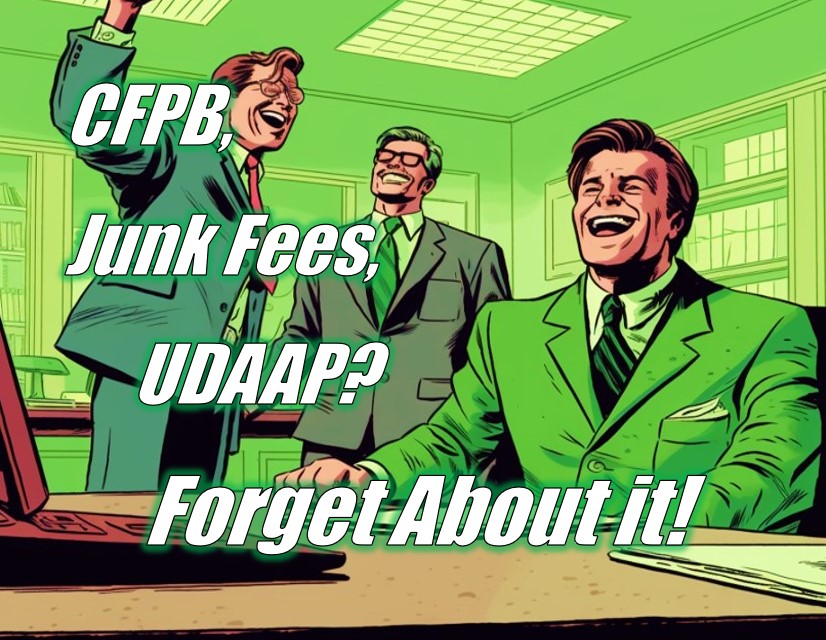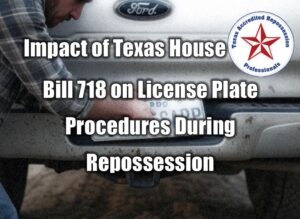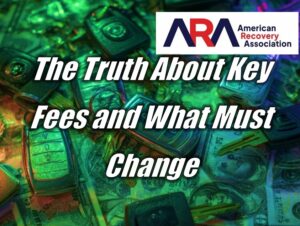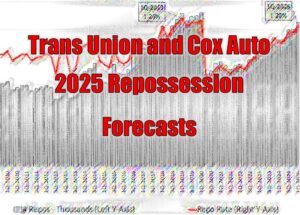CFPB, Junk Fees, UDAAP, Who Cares?
EDITORIAL
Back in March I thought we’d seen some serious judgement on the topic of escalated repossession fees referred to as “Junk Fees” by the Consumer Financial Protection Bureau (CFPB.) And as “Junk Fees” were considered an unfair, deceptive and abusive act (UDAAP), I had also assumed that we would see some changes to the repossession forwarding model or prices. Well, boy was I wrong.
Over the past month I’ve seen numerous repossession invoices from several repossession forwarding companies. Some from lenders and some sent to the repossession agencies in error. And judging from the sample I’ve reviewed, not one forwarder has changed billing practices.
Did I miss something? Someone please set me straight.
Junk Fee’s Keep Rolling!
I’ve seen it as have many of you; hazardous fluid removal fees, $25 a day storage, Dolly fees and $1,000 repossession fees and none of it paid to the agency except their $320 recovery fee. Last week I saw an invoice intended for a client that PAR sent to an agency in error that showed them charging the lender $950 for a repossession that the agency was only paid $330. If charged to the borrower, it was my belief that those would be Junk Fees and if so, UDAAP’s, but maybe I’m wrong.
I’ve reached out to many forwarders and not one would share with me, what if anything, they have communicated to the clients regarding the CFPB’s statement. I’ve reached out to several lenders, some I’ve known and respected for years, and likewise, crickets. So, this leads me to believe one of four things is happening.
One; the CFPB clarified this statement elsewhere at a later time or directly to all of them and I just never stumbled across it, was provided it by anyone or could find it in the web. The last of which is very unlikely, I scour the internet for their rulings and legal opinions on repossessions almost daily.
Two; is it possible that every single lender and forwarding company in the entire lending and forwarding worlds have received legal opinion that somehow performs legal jiu-jitsu around the CFPB’s definitions of these otherwise deemed unfair, deceptive and abusive practices? If this is the case, I’d love to see them, I like to consider myself an open-minded person capable of objective reasoning and would be more than happy to share it with the world.
Three; perhaps the lenders are simply paying everything as usual and only charging or quoting borrowers the CFPB quoted $350 and nothing more. I suppose this is possible, but that certainly seems to be an expensive option.
Four; and then there is the possibility that no one really cares or believes that the CFPB will enforce this.
I suppose much of this will flush itself out in future examinations by the CFPB or other examiners over time. I’d heard rumors of them visiting one forwarding company at two of their locations over a three-week period. If true, it seems as though they are up to something.
A Review
On March 20th, I’d shared with everyone my correspondence with the CFPB’s Office of Public Affairs Spokesperson on the topic of Junk Fees. The root of the entire conversation stemmed from the CFPB’s Winter 2023 Supervisory Highlights Junk Fees Special Edition where their Examiners reported;
Examiners found that, where servicers allowed consumers to recover their vehicles after repossession by paying off the loan balance or past due amounts, servicers charged a $1,000 estimated repossession fee as part of the amount owed. This estimated repossession fee was significantly higher than the average repossession cost, which is generally around $350. By policy, the servicers returned the excess amounts to the consumer after they received the invoice for the actual cost from the repossession agent.
Examiners found that the servicers engaged in unfair acts or practices when they charged estimated repossession fees that were significantly higher than the costs they purported to cover. The relevant contracts permitted the servicers to charge consumers default-related fees based on actual cost, but here the fees significantly exceeded the actual cost. Charging the fees caused or was likely to cause substantial injury in the form of concrete monetary harm.
For consumers who paid the amount demanded, deprivation of these funds for even a short period constituted substantial injury. Furthermore, some consumers may have been dissuaded from recovering their vehicles because the servicers represented that consumers must pay a $1,000 estimated repossession fee in addition to other amounts due. Some consumers may have been able to afford a $350 fee but not a $1,000 fee, and therefore did not pay and permanently lost access to their vehicles.
Consumers could not reasonably avoid the injury because they did not control the servicers’ practice of charging unauthorized estimated repossession fees. And the injury was not outweighed by countervailing benefits to consumers or competition because the fee exceeded costs necessary to cover repossession.
In response to these findings, the servicers ceased the practice of charging estimated repossession fees that were significantly higher than the actual average amount and provided refunds to affected consumers.
These are the words of the CFPB. These words, prompted me to ask for clarification, to which I asked;
“Hi Kevin,
Thank you for your query. On background, Supervisory Highlights summarizes actions the CFPB has taken in examinations. In the citations referred to in Supervisory Highlights, servicers were charging consumers for repossession costs that exceeded the actual repossession costs billed to the servicers.”
The CFPB’s Office of Public Affairs Spokesperson, Tia Elbaum, has been very responsive to the best of her ability, but obviously I wanted more. So, I asked her another question.
“Tia,
Thank you again for the quick response. So, this has to do only with the actual cost of the repossession itself and not any other estimated fees? In other words, if the repossession agent was paid $350, the borrower shouldn’t be charged any more for the actual repossession than what the agent was paid, correct?”
In response, she stated last Friday the 17th;
“Hi Kevin,
On background, we are not going to comment on any specific fact pattern, but the citation is generally about charging a fee to cover a cost relating to repossession, where the fee exceeds the actual, applicable cost to the company.”
Basically, she said the same thing in a different way, so, I followed up with hone more try;
“I understand, but which company? The lender, or the repossession management company?”
Thank you,
Kevin
To which today, Monday the 20th, she replied;
“Hi Kevin,
Thanks again for reaching out. Please accept the following on background:
“We’re concerned about servicers that charge fees above the actual applicable cost to the company, whether the company at issue is the lender or the repossession management company.”
Throw me a Bone
That all looks pretty clear to me. Did I miss something? Please, someone, throw me a bone here. I really would like to know what I missed.
I was never really naïve enough to think that it would be adapted to or accepted easily, there is a lot of money to be made by these escalated repossession fees. But I also have a hard time believing that CFPB examined lenders would just dismiss all of this. Someone send me a recent NOI on a forwarded account if you can.
It’ll be interesting to see if or when the CFPB actually finds future UDAAP violations with other lenders than the unnamed one in the Junk Fees finding. Or if they’ll continue to act on them.
Kevin Armstrong
Publisher
Related Articles;
CFPB Provides Clarity on UDAAP Repossession Fees
CFPB’s Response to Questions on UDAAP Repo Fees
CFPB Labels Repossession Forwarding Fees as UDAAP?
CFPB; How is this not an UDAAP?














Facebook Comments